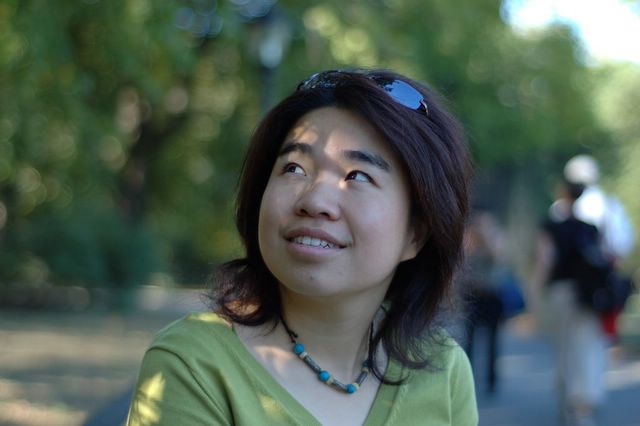
Die ägyptische Helena (The Egyptian Helen) is an opera in two acts by Richard Strauss to a German libretto by Hugo von Hofmannsthal. It premiered at the Dresden Semperoper on June 6, 1928. Strauss had written the title role with Maria Jeritza in mind but, creating quite a sensation at the time, the Dresden opera management refused to pay Jeritza's large fee and cast Elisabeth Rethberg instead as Helen of Troy. Jeritza eventually created the part in Vienna and New York. Met’s new production is nothing but a faithful presentation of the 1928 version of the opera. “The great Strauss interpreter Deborah Voigt sings the role of Helen of Troy in this seldom-heard mythological drama of love and fidelity, featuring some of the composer’s most beautiful music. Director David Fielding’s post-modern sets provide a fanciful backdrop”.
The director David Filding wrote “Richard Strauss’s Die Ägyptische Helena is about the nature of choice and commitment in one’s life relationship. That is the central resonance of the piece; why we commit, and whether our chocie in partners is made for the right reasons. To me, what librettist Hugo von Hofmannsthal is tring to say is: Am I working toward a happier relationship, or has my relationshio become an obsession?”
For me, the opera is really too modern in both its theme and its presentation. The stage design is adopted from 1997 version at Garsington Opera, a summer festival held at a manor house in Oxfordshire where he first staged Helena in 1997. The custom design and lighting are all too modern to give you any sense of a greek mythology. You basicaly watch a comtemporary play with minimalist principle as its guide: very simple background, no funiture, simple color lighting, plain dressing. I don’t feel they are too intrusive for the play. The play is about relationship anyway, and the topic is timeless and so its representation. So the director should have the freedom to stage the play in any time and space.
What really bothers me is the story. As it is introduced as follows, “On theone hand, it is heavy in symbolism, steeped in the Freduian sensibility of early 20th-ceuntry Vienna. But the opera’s examination of the nature of marriage is universal”. The story begins when Menelas returend from Troy with his wife Helena after conquering Troy. He tried to kill Helena when Aithra, the wife of Sea God Poseidon invoked a storm in time to save Helena’s life. Aithra tried to save their marriage by asking Helena and Menelas to drink the potion which taking away their memories, and pretending Helena was never taken away by Paris. What Paris abducted was a substitute of Helena. The trick failed when another prince Altair began to court Helena and Menelas forgot Helena’s identity. In the end, Menelas killed Altair’s son and Altair seeked for revenge. Helena decided to drink the potion of rememberance with Menelas to recover their past memory and agony. Aithra called the help of Poseidon to defeat Altair. Helena and Menelas reunited and lived happy forever.
I think the end of the story is not convincing. Hofmannsthal himself wrote the opera was to about “what lay between that dreadful night (when Menelas rescued his wife from Troy) and the complete reconciliation that followed? What can have helped rebuild this marriage as a true companisonship?” In the play, it is Helena’s self consciousness which bring about her decision to face the harsh reality, instead of hiding away by magic. I think there are at least three quesitons to be addressed. First, is the marriage worthy of saving? Second, is Helena’s beauty a public or private good? Should her beauty be bound to one person through marriage? Third, is reconciliation possible after servere emotional damage? Is reconciliation desireable at all? I don’t know the answer, but I wish to know more about these question.
 Ximena showed me a video clip (Sempre Libera) of Met’s La Traviata in last Saturday by the great Romanian soprano Angela Gheorghiu. She is really fantastic, so free at high note and very good at acting. By chance, find a Belgium director Gérard Corbiau who made many films about opera. He made Le Maitre de musique (1988) which included a scene where a girl sang Sempre Libera. His most well known film is Farinelli (1994) and Roi danse, Le (2000). One can find clips from Farinelli from Youtube.
Ximena showed me a video clip (Sempre Libera) of Met’s La Traviata in last Saturday by the great Romanian soprano Angela Gheorghiu. She is really fantastic, so free at high note and very good at acting. By chance, find a Belgium director Gérard Corbiau who made many films about opera. He made Le Maitre de musique (1988) which included a scene where a girl sang Sempre Libera. His most well known film is Farinelli (1994) and Roi danse, Le (2000). One can find clips from Farinelli from Youtube.


没有评论:
发表评论